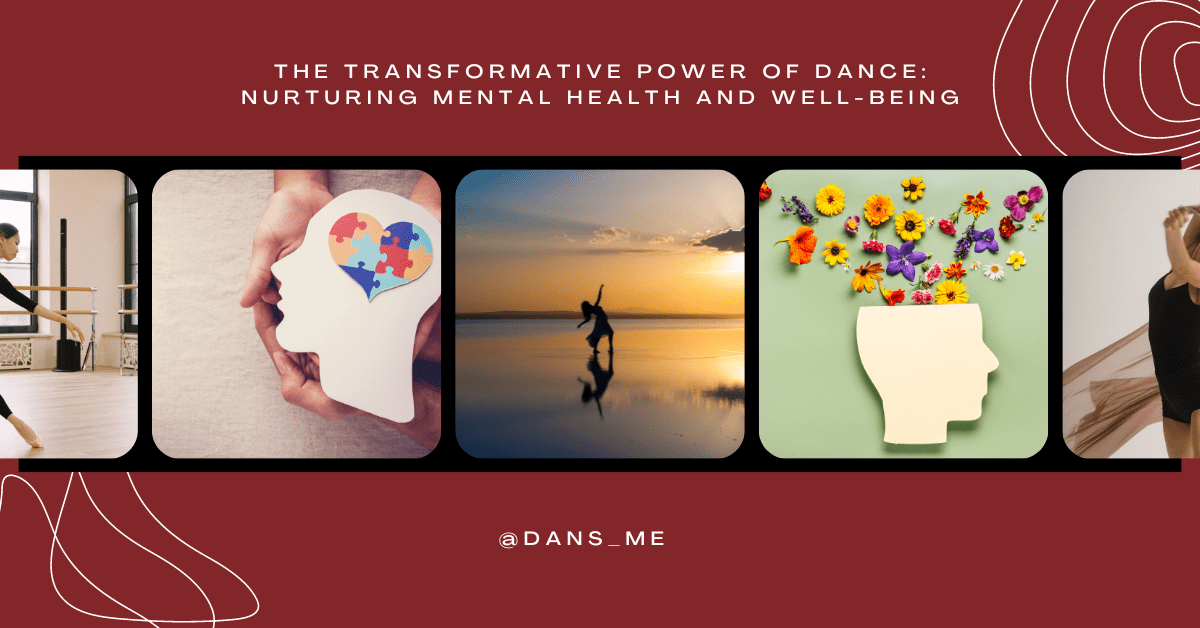
In a world that often feels chaotic and overwhelming, finding an outlet for self-expression and rejuvenation is crucial. Dance, with its captivating rhythms and graceful movements, has emerged as a transformative art form that extends beyond physical fitness. This blog will delve into the profound impact of dance on mental health, exploring how it can improve emotional well-being, boost self-confidence, alleviate stress, and foster a sense of connection.
- Dance and Emotional Well-being:
Dance serves as a powerful channel for emotional release and self-exploration. Through movement, individuals can express their deepest emotions, whether it be joy, sorrow, or anger, in a non-verbal and cathartic manner. By engaging in dance, we tap into a creative outlet that allows us to process and express complex feelings that may otherwise be difficult to articulate.
- Dance and Self-Confidence:
Dance has the remarkable ability to enhance self-confidence and promote a positive self-image. As individuals master new movements and improve their skills, they experience a sense of accomplishment, which bolsters self-esteem. Moreover, dance offers a unique opportunity for self-expression and personal growth, allowing individuals to embrace their bodies and celebrate their uniqueness, fostering a deep sense of self-acceptance.
- Dance and Stress Reduction:
In today's fast-paced society, stress has become a prevalent issue affecting mental health. Engaging in dance provides a welcome respite from daily pressures, offering a chance to unwind and disconnect from the outside world. The rhythmic and repetitive nature of dance promotes relaxation, releasing endorphins and reducing the levels of stress hormones in the body. This harmonious blend of movement and music creates a meditative state that calms the mind and allows for a sense of inner peace.
- Dance and Social Connection:
Dance is inherently a communal activity, often performed in groups or partnerships. Participating in dance classes, workshops, or social events not only provides an opportunity to develop new skills but also fosters meaningful connections with like-minded individuals. The sense of camaraderie and support within the dance community can be profoundly uplifting, reducing feelings of isolation and loneliness. Dance offers a platform for building social bonds, cultivating empathy, and creating a sense of belonging.
- Dance and Cognitive Function:
Beyond the emotional and social benefits, dance has been shown to improve cognitive function. Learning choreography requires mental agility, memory recall, and coordination, thereby stimulating various areas of the brain. Studies suggest that regular dance practice can enhance cognitive abilities, such as memory, attention, and problem-solving skills. Additionally, the integration of music in dance activates the auditory system, promoting auditory processing and musicality.
Dance is a dynamic and multi-faceted art form that nourishes not only our bodies but also our minds and souls. By engaging in dance, we embark on a transformative journey that promotes emotional well-being, self-confidence, stress reduction, social connection, and cognitive function. So, let the music move you, embrace the rhythm, and experience the profound effects dance can have on your mental health. Step onto the dance floor and discover a world of self-discovery, healing, and joy. Dance your way to a healthier, happier you!
